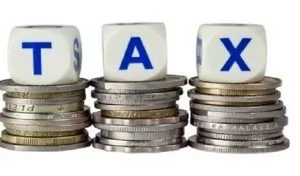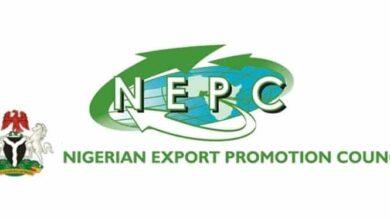10 Problems of Nigerian Tax System and Possible Solutions
What is Tax?
According to Oxford Advanced Learner’s Dictionary, Tax is Money, paid, to the Government, used for Public services. People pay Tax, according to their Profits, and it’s often paid on goods and Services.
Also Black Law Dictionary, states that Tax is Monetary Charge imposed by the Government, on Individuals, Businesses, or Property to yield revenue for the Public.
👉 Relocate to Canada Today!
Live, Study and Work in Canada. No Payment is Required! Hurry Now click here to Apply >> Immigrate to CanadaTax is the process of collecting amounts of money, within a particular location. It is seen as a monetary charge authorized by Governments, on Persons, entities, Transactions, or Properties to yield Revenue.
Read Also: Problems and Prospects of Taxation in Nigeria

According to Thomas Cooley, author of ‘In the Law of Taxation’ defines Tax as Proportional Contribution, from Individuals, Businesses or Properties levied by the State. This is by virtue of sovereignty towards the Government, and for all Public needs.
Taxation defines as Compulsory Contribution, lives on Incomes, Profits, Goods and Services, or Properties of Individuals, Corporate bodies, Trusts and Settlements.
Tax can be defined also as pecuniary burden laid upon Individuals, or Property used to support Government’s expenditure. It can also be described as a Voluntary Payment or Donation but an enforced and Compulsory Contribution, exacted from a Legislative Authority.
Tax on the other hand, is a financial burden imposed by State or Federal Governments, to aid support Government expenditure to provide Goods and Services, for the Citizens. These could be in infrastructure like Schools, Hospital, Roads, bridges, Housing, etc.
👉 Relocate to Canada Today!
Live, Study and Work in Canada. No Payment is Required! Hurry Now click here to Apply >> Immigrate to CanadaIn the case of MATTEW v. CHIKORY MAKETING BOARD OF VICTORIA AUSTRALIA, says that taxation according to Judge Latham J, is a Compulsory exaction of money, to be used by Government for Public use. Tax is seen as a means of making money for Government. This could be mandatory Contributions got from Individuals, Businesses and Properties.
Tax can also be seen as form of Levy imposed to all Residents and non-Resident to finance doing business within Tax Jurisdiction. It can also be seen as an income yielding Revenue Device, used to ensure socio-economic and Infrastructural Amenities and enhance Industrial efficiency.
Read Also: The role of Taxation in the Nigerian economy
This Article is to state the Ten Problems of Nigeria Tax System and possible Solutions.
Ten Problems of Nigeria Taxation System:
1. Demand to grow Internal Generated Revenue
There is an increase demand to grow more revenue within states in Nigeria. This has led to the exercise of Taxation to detriment of Taxpayers. Taxpayers has to bear higher burden because Government wants to have more revenue to meet social needs of the Citizens.
2. Insufficient Information
There isn’t enough information available to Tax Payers in Nigeria. This involves Tax Compliance, Rules and Guidelines, which can cause uncertainty and cause great Leakages in the Taxation System.
3. Multiple Taxation
There is need to avoid repetition of Taxation in Nigeria. This has caused huge financial burden to the Taxpayers, leading to huge losses in Investments and Resources.
4. There is Lack of Accountability for Tax Revenues and its Expenditure
This is as a result of poor Record keeping and inaccurate Audit Reporting. This has given rise to Corruption and lack of financial Transparency, in the Taxation system.
5. Lack of Clarity
There is lack of clarity on Taxation powers, on each levels of Government i.e. State, Federal and Local Governments. This has led to conflicts of interests existing on the levels of Governments.
6. Lack of Skilled Man Power
There is lack of skilled manpower and inadequate funding, which led to delegation with powers of Revenue Officials, to third Parties. This has led to great uncertainty and increasing the Cost Compliance in the Nigeria Tax System.
Read Also: Causes of tax evasion in Nigeria and effects on the economy
7. Government’s Harsh Methods of Collecting Taxation
There is problem of Government using very aggressive methods of Taxation. Government in other to generate Revenue, will ask Tax Payers to pay mandatory Contributions, to meet social welfare of Citizens. This has resulted in high burden on the Tax Payer.
8. Excess Money not Accounted
Tax payers are not refunded money, they paid excessively. This has resulted to lack of efficient Taxation system, because it brings inadequate account of Tax collection, used as Revenue by Government.
9. Lack of Proper Review of Taxation
There is difficulty in Nigeria Taxation System because, of Government inability to check and update Taxation Laws.
10. Lack of Specified Policy Direction
There is lack of specified Tax policy Direction. This has made it difficult for the Country, to lay down adequate Guidelines and Procedures that will allow for an effective Taxation System, in Nigeria.
Read Also: Solutions to Tax Evasion and Avoidance in Nigeria
Possible Solutions For Nigeria Taxation System:
1. There is need for continuous review of Tax laws
There is need for Nigeria to continue reviewing Tax policies. This is to meet the standard of ensuring that economic realities are met. For example, Nigeria have found ways to enhance the proper administration for collection of revenue in Nigeria.
Recent reforms like TIN, unique Taxpayers’ Identification number, which was effective in February 2018, and also another Taxation scheme called Voluntary Asset and Income Declaration Schemes
This reduces the incidence of Tax touts, enforcement schemes i.e. Special Purpose Tax Officers. It also ensures compliance in payment of Taxation System in Nigeria. Such Tax laws, mentioned above, must continuously be reviewed to meet the ever changing society.
2. There is need for disclosure and sharing information
There is need for mutual co-operation of Governmental Agencies and Government Parastatals. There is need for proper information to avoid Tax evasion and fraudulent Tax practices in Nigeria.
3. Beneficial / Welfare Schemes:
Nigeria Government must be more responsive, to the welfare needs of the society. Nigerian Government can generate more revenue through Tax, if there is trust in the Schemes and Programmes set up for collection of Tax for the Public.
4. There is need for proper fiscal Federalism
Nigeria Taxation system must ensure that the different levels of Government, i.e. Federal, State and Local Government, have effective collection of revenue in the Country.
This will ensure accountability, and reduce Corruption. An effective structure ensuring collection in all levels, will enhance Sustainable Development, as Government will be able to ensure providing for its citizens.
5. Elimination of Multiple Taxation
There is need for Government to ensure elimination of Multiple Taxation in Nigeria. Multiple Taxation should be removed. There is need to harmonize the different types of taxation for the Tax payers. This makes the burden on taxpayers, less cumbersome.
6. Tax laws should be codified and easy to understand by the Tax payer. This is to say that Nigeria can introduce forms for collection of tax, stated in different languages like Igbo, Hausa, and Yoruba Languages. This will enable for Tax payers to be aware of how to pay tax.
7. Civil Education
Is need for proper Information to educate People in Nigeria about Taxation. There should be Radio and Television Programmes in Nigeria, telling people about the benefits of Taxation, and the Penalties if they fail to pay.
This Educative Programmes is to inform Nigerian Citizens, that there is mandatory obligation and duty to pay Tax. This is to enable Government, to meet the Social Welfare of its Citizens.
8. Improving the Record base and Data:
There is need for better Records Keeping of Information. This is to allow for a better efficient Tax System. This can be done by providing better Technology like Computers, Fax, and better Research analytical methods, to enhance better collection of tax.
9. Elongation of Taxation collection
This will ensure the principles of convenience, on the part of Taxpayers. Collectors of the Tax should be made to operate on shift, throughout the day. This enable for Taxpayers to be given time to pay.
10. Need for better Communication
Tax collectors, need to provide better means of Communication, such as better Telecommunications services from Telephones, Internet Services, or Email networks. This is to enable Tax Payer, to efficiently communicate with Tax collectors, to ask questions or get Information on Taxation.
Read Also: How to Get Taxpayer’s Identification Number, TIN, in Nigeria
Conclusion
Nigeria Tax System has different problems, but Government needs to make better effort to ensure effective collection of revenue through Taxation. This ensures friendly Investment Climate, reduce corruption, and sustains Development, to every Levels of Government in Nigeria.
Key Words:
Tax, Government, Communication, Investment, Services, Technology, Research, Information, Record Base, Data, Telecommunications, Fiscal Federalism, Development.
References:
Adefaye, National Tax Policy Guidelines And Rules, >Vanguardngr.Com>Accessed On 6th April, 2018.
Asuquo, Richard Gregory, Tax System In Nigeria: Issues And Challenges>Vanguardngr.Com>Accessed On 6th April, 2018
National Tax Policy, Federal Ministry Of Finance, Report, September 2016.>Pwcnigeria.Typepad.Com>Accessed On 7th April, 2018.
Introduction To Nigeria Tax System>ICANIG.ORG>Accessed on 6TH April, 2018.





